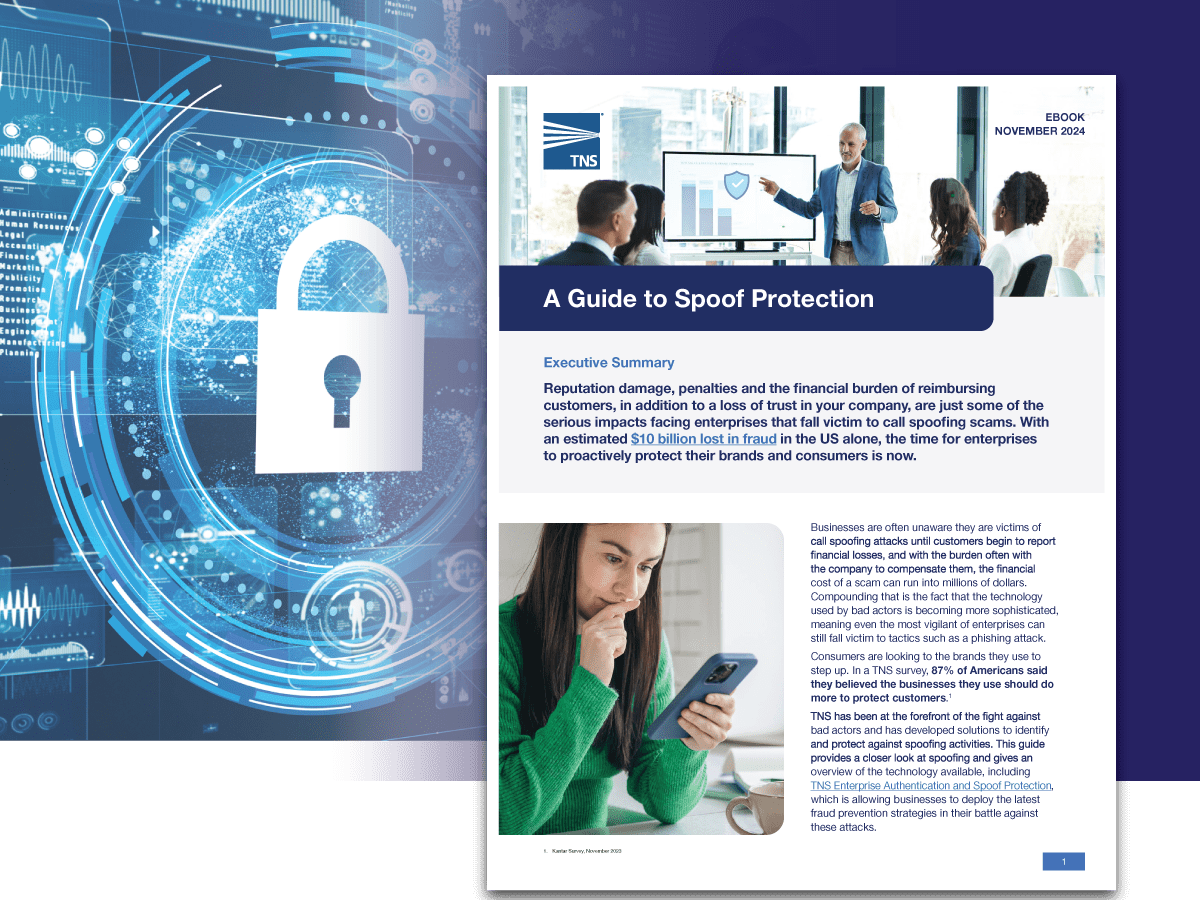In 2023, Americans lost $10 billion to scams, an all-time high and a 14% increase from the previous year, according to the FTC. Of that staggering total, $2.7 billion stemmed from imposter scams – the second-highest reported category. These scams are not only growing in frequency but also in sophistication, with bad actors leveraging AI to mimic voices and manipulate victims with alarming precision.
‘Spoofing’ is when a bad actor uses a legitimate organization’s phone number to convince victims that they’re talking to a known and trusted source. This type of fraud could be used to access confidential financial information. This evolution in scam tactics is reshaping the fraud landscape, making it increasingly challenging for businesses to protect their customers, reputation, and bottom line.
To address this growing threat, security leaders must focus on securing outbound communications to prevent bad actors from hijacking the voice channel for spoofing and impersonation attacks.
The Real-World Impact of Impersonation Scams
Even the largest brands are not immune to impersonation scams. A Chase Bank customer lost over $120,000 last year after a bad actor spoofed Chase’s customer service number. Amazon has also been a frequent target of imposter scams. Bad actors may pose as sales representatives and trick victims into granting remote access to their accounts under the guise of processing refunds. This access enables them to steal credit card numbers and other personal information.
Impersonation scams don’t just result in financial losses – they can severely damage customer trust. TNS has found that 68% of Americans never answer calls from unknown numbers, and 76% admitted they missed important calls they would have answered if they recognized the caller.
This hesitancy to engage with the voice channel is particularly harmful to businesses in high-touch industries like finance, healthcare, retail, hospitality and insurance, which rely on phone calls to deliver critical communications to customers.
Securing Outbound Communications: A Multi-Pronged Approach
Many times, businesses are unaware their number has been spoofed until it’s too late. At that point, the reputation has likely been damaged and customers have been lost to competitors.
It has increasingly fallen on CXOs and security leaders to identify ways to strengthen and secure their outbound communications with customers. TNS enables businesses to prevent these negative outcomes with a multi-pronged approach through the TNS Enterprise Product Suite, which includes two critical solutions:
- TNS Enterprise Authentication and Spoof Protection ensures that only verified calls reach customers, allowing businesses to identify the origin of each phone call and that numbers are not being manipulated. It also identifies and blocks unverified calls immediately so that spoof attempts never reach end customers, reducing the amount of fraud claims and complaints related to spoofed calls.
- TNS Enterprise Branded Calling displays critical call information on incoming call screens, such as brand name and logo, helping customers identify legitimate calls and reducing the likelihood of getting scammed.
Together, these solutions protect businesses and their customers while restoring trust in the voice channel, improving overall customer experience.
A Case Study in Success
This year, a major national bank faced a large-scale phishing attack impacting millions of customers, who received a text warning them about fraudulent activities on their accounts. The text informed customers they would receive a phone call from the bank, which appeared to be legitimate but was not.
After quickly implementing the TNS Enterprise Product Suite, the bank was able to verify legitimate calls, block fraudulent ones and begin branding calls. In the first few months of deploying this solution, over 130,000 fraudulent calls have been blocked, and in the third month after the bank implemented Branded Calling, call durations had increased by 13% – a strong indicator of restored customer confidence.
As impersonation scams grow more sophisticated, businesses must remain vigilant and proactive. By fortifying their outbound communications, financial institutions can help safeguard their brand reputation, protect their customers and ensure the voice channel remains a trusted tool for engagement. With the right tools and strategies, businesses can turn the tide against impersonation scams.
With 30+ years of experience in call identification, TNS is in the prime position to offer the next level of branded calling with the TNS Enterprise Product Suite. TNS solutions provide businesses with ability to protect their brand from bad actors in order to increase trust, reduce fraud and improve the customer experience.
Maurie Munro is Vice President of Enterprise Sales at TNS with specific responsibility for TNS Enterprise Product Suite.

Download our Guide to Spoof Protection eBook
Learn more about how you can protect your business and your customers from spoofing attacks.





